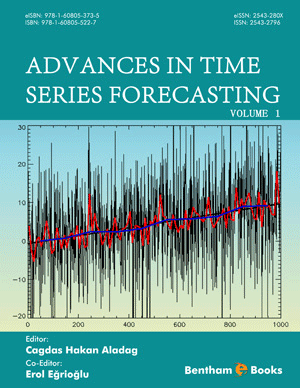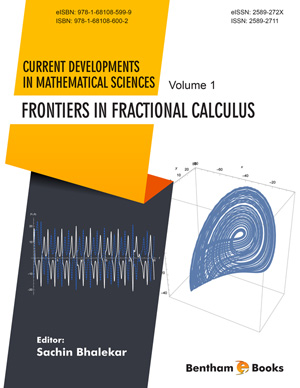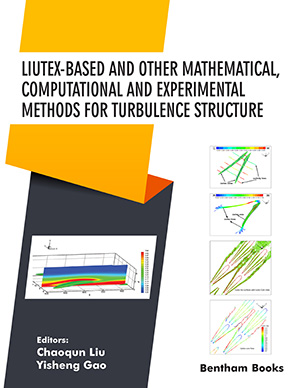Preliminary Concepts
Page: 1-19 (19)
Author: F. A. Izadi
DOI: 10.2174/978160805086410901010001
PDF Price: $15
Abstract
For the purpose of being self-contained, the book starts with some elementary topics. These include the definition of various standard sets, some basic combinatorial definitions and identities, introducing complex numbers and their arithmetic properties, in particular de Moivre formula and the nth roots of a complex number. The case of square root gives rise to an elegant formula for the root of the real number of the form a± √b. The next two sections are devoted to the definitions and properties of matrices and determinants, the solutions of the linear system of equations as well as the formulas for some special determinants, in particular the Vandermonde determinant. Finally, the closing remark of the chapter is the definition of a function which plays an important role in discrete calculus. Because of its relation to the arrangement formula it is called "the arrangement power function".
Theory of Sequences
Page: 20-37 (18)
Author: F. A. Izadi
DOI: 10.2174/978160805086410901010020
PDF Price: $15
Abstract
In this chapter we discuss sequences which are defined by certain recurrence relations called difference equations. In general, they are divided into two different types; the finite and the infinite sequences. The finite sequences in turn are separated into two different cases; namely the periodic sequences and non-periodic ones. For the solution of a periodic finite sequence, we use finite Fourier series which in this book we refer to as discrete transformation. But to solve the non-periodic finite sequence, it is first necessary to transform it into a periodic sequence which can be done by adding some new equations to the system and then deal with it as a periodic finite sequence. Last section concerned with the solutions of the infinite sequence by using the method of Euler's scheme.
Discrete Calculus
Page: 38-81 (44)
Author: F. A. Izadi
DOI: 10.2174/978160805086410901010038
PDF Price: $15
Abstract
Firstly, we define the discrete differentiation and integration of functions and their arithmetic properties. By using these properties, we can easily calculate many important summation formulas in particular a closed formula for the sum of kth powers of the first n consecutive positive integers, an expression for the discrete gamma function, as well as a formula for the number of regions in which x hyperspaces in general position, divide the n-dimensional space Rn. It turns out that this number can be given as a function of x expressible as a Taylor expansion at the origin. Secondly, by introducing an analog of the exponential function, we treat the difference equations as a discrete differential equations. For example, we solve the arithmetic progression as a first order and Fibonacci sequence as a second order Cauchy discrete differential equation problems. Finally, in the remaining three sections, we deal with the methods of the variation of parameters, the solution of the Cauchy problem for non-homogeneous differential equations, as well as the boundary value problem both for homogeneous and non-homogeneous differential equations of second order in discrete cases.
Boundary Value Problems
Page: 82-100 (19)
Author: F. A. Izadi
DOI: 10.2174/978160805086410901010082
PDF Price: $15
Abstract
The theory of discrete value problems and their connections to the spectral theory of operators are discussed in this chapter. These problems can be interpreted as the discrete analog of the mathematical physics equations in one dimension. These include auxiliary problem scheme, coincidence condition of a boundary value problem on its auxiliary problem, the type of problems coinciding with their auxiliary problems, the necessary condition for existence of the boundary value problem and finally the boundary value problem on an infinite domain.
Appendix A 2-Variable Discrete Analysis
Page: 101-140 (40)
Author: F. A. Izadi
DOI: 10.2174/978160805086410901010101
PDF Price: $15
Abstract
This chapter deals with ten different problems. Except for the three sections; namely an unsolved problem about a cubic root of a complex number, symmetric derivative, and the spectral de- composition of a matrix by a projection matrices, all other sections are devoted to the discrete analysis of complex valued functions. Topics included are the discrete partial derivatives of complex valued functions, the Cauchy theorem, Laplace equation, Cauchy-Riemann discrete differential equations, complex integra- tion and above all, the most important concept which brings all these together, is the discrete analog of analytic functions in complex analysis.
Bibliography
Page: 141-142 (2)
Author: F. A. Izadi
DOI: 10.2174/978160805086410901010141
PDF Price: $15
Abstract
Full Text Available.
Abstract
Full Text Available.
Introduction
Discrete Hilbert-type inequalities including Hilbert's inequality are important in mathematical analysis and its applications. In 1998, the author presented an extension of Hilbert's integral inequality with an independent parameter. In 2004, some new extensions of Hilbert's inequality were presented by introducing two pairs of conjugate exponents and additional independent parameters. Since then, a number of new discrete Hilbert-type inequalities have arisen. In this book, the author explains how to use the way of weight coefficients and introduce specific parameters to build new discrete Hilbert-type inequalities and consider some applications. The book is intended to augment the reader's understanding of Hilbert-type inequalities.












